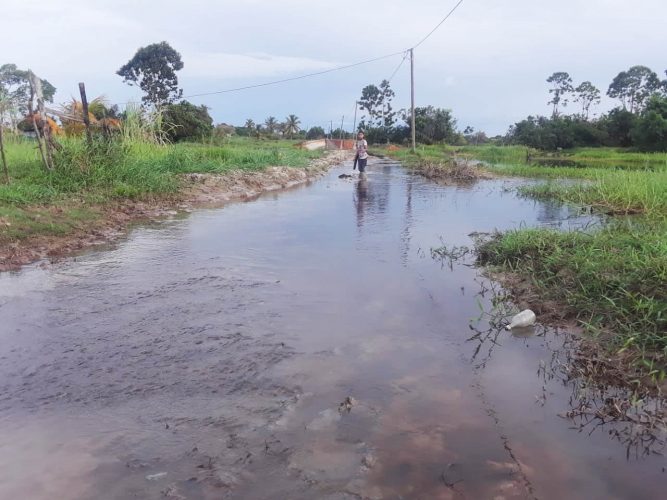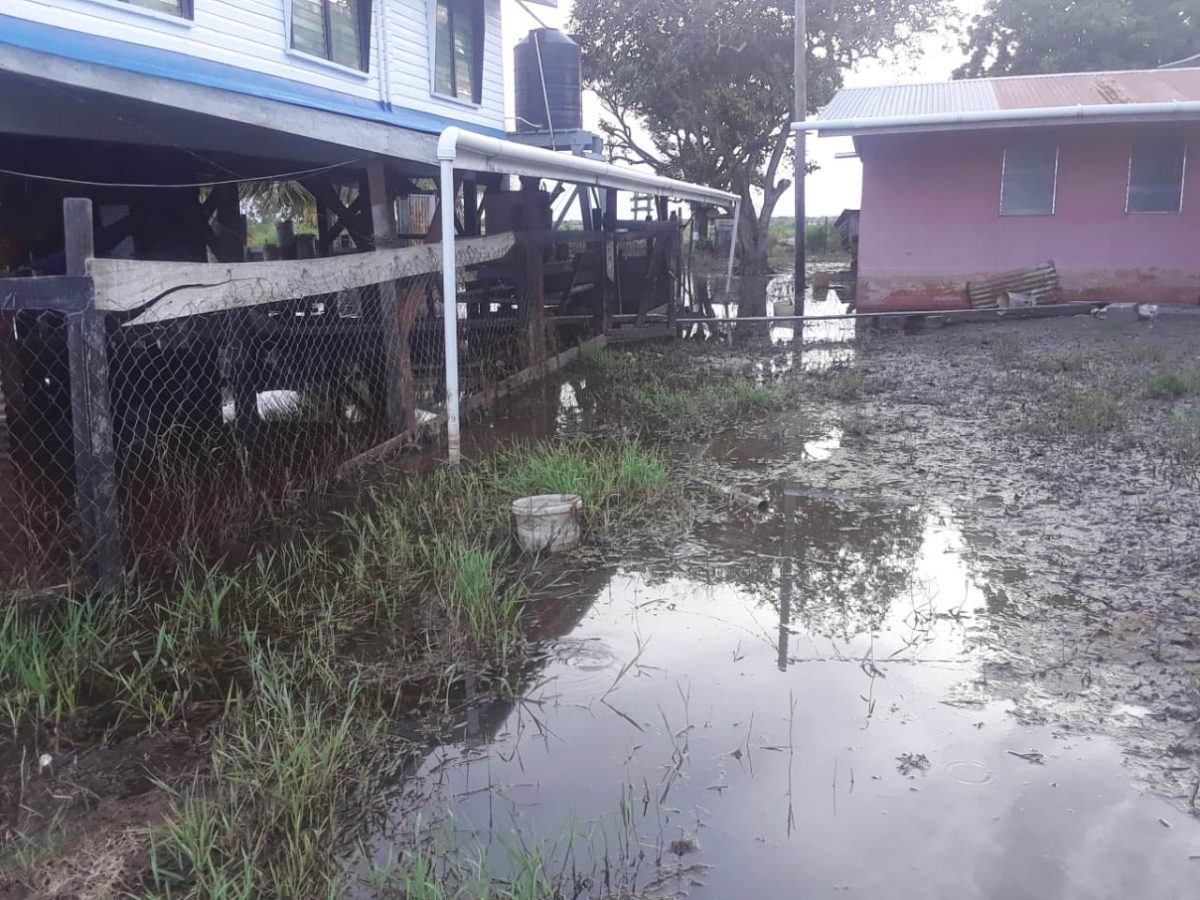As they continue to navigate the challenges of the floods which started back in May, families along the Mahaica, Mahaicony and Abary Rivers yesterday said they are in need of potable water.
Householders yesterday explained to Stabroek News that their access to clean water is limited as they are dependent on rainfall and water distributed to the communities.
Since the flooding, the Civil Defence Commission (CDC) and the Region Five Council have been partnering to supply water to affected households. However, families said the distribution teams are not coming often enough.

Villagers’ main source of water was from the rivers prior to the floods but those have now been contaminated with animal carcasses and sewage.
“Is not everybody is able to meet to where they give water and you cannot carry your tank to collect water. The little containers we have we walk with, but the water finishes …quickly,” 71-year-old Rani Panday of Water Dog, Mahaicony River related.
According to the woman they are in need of potable water to complete domestic tasks. She explained that while a distribution team visited last week, on many occasions they do not have enough water to supply the villages in the Mahaicony River.
“They do come, yes, and tell you to go and collect water but when the water done, they say they will return but they don’t come back and everybody don’t get water. Some people don’t even have large containers to collect enough water,” she explained.
Panday related further that during the first phase of distribution of relief hampers they were give cases of water but that no longer occurs.
“We used to use the creek water but now with so many animals dead it’s not safe to use the water,” she pointed out.
In Abary River, farmer Jeremy Sharma explained that their situation is no different from the other two riverine areas.
He related that some families on Friday last were given water when Minister of Finance Dr Ashni Singh visited, however not everyone was able to receive.
“I made a call yesterday [Sunday] to CDC for water and a guy promise to call back but we are still waiting. Here in Abary we are punishing for water sometimes we get sometimes we don’t and we do not have large containers to collect water or we don’t know when they are coming,” Sharma said, while explaining the plight of the villagers.
He stated that approximately two weeks ago, the distribution team visited and households were able to collect water. However, most homes have utilized the water collected leaving them in need.
Like Panday, he said the water distribution team should visit affected communities more frequently to supply water and ensure there is no shortage.
Over in the Mahaica River, cattle farmer Sugrim explained that they are forced to purchase water as they don’t want to be dependent on the regional administration and left without.
“We buying water here because sometimes they [distributing teams] come and give some people and some people don’t get because they are not at home or they don’t have containers. We buy water here now,” he said before stating that some families who cannot afford to purchase water remain dependent on the river.
Slowly receding
Water levels in the villages along the three rivers have been receding slowly, the villagers said. It was pointed out that water levels remains relatively high in farmlands while it has dropped to ground level in residential areas.
Giving an overview of the flooding situation in the Mahaicony River, Panday explained that the water from her yard is almost non-existent but remains on the perimeters.
“This has been a terrible, terrible flood. In my 71 years of living here, I never see so much water. We can’t blame government for this, this is the work of God and Mother Nature,” she related before expressing gratitude to those who distributed and continue to give out food hampers to her community.
Sharma yesterday said that sections of the Abary River are now muddy as floodwaters have left most yards.
“The water is pulling off but the mud that came with it is left now. That is very thick but most yards don’t have water. The farms are still covered so we cannot go back to farming yet,” he related.
He pointed out too that an excavator did some work to remove obstructing vegetation along the river but that has floated and clogged up the mouth of the river.
“They promise to send another excavator to start clearing the mouth of the river so hopefully then we will see some faster relief,” he added.
Meanwhile, Sugrim added that water levels have dropped in the Mahaica River but the farmlands are still inundated. He stated that the water has been slowly moving off from the land and it is frustrating as they are uncertain as to when they will be able to return to normalcy.
The floods have resulted in significant losses to farmers across the MMA area and many are pondering their next move.
Many farmers were in the land preparation phase for rice cultivation and they said that they will no longer be able to plant for reaping before the December rainy season.
Cattle farmers in the district have also suffered tremendously as many of their cattle drowned and died due to hunger. The farmers were also forced to sell their animals below market value.






